
Decades may have passed since Three’s Company graced our screens, but its laughter still echoes in our hearts.
With unforgettable characters and side-splitting misunderstandings, this classic sitcom revolutionized the genre. Now, Joyce DeWitt reveals what really made the show a timeless treasure…
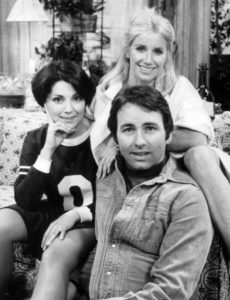
Public Domain
From the hilarious antics of three single roommates to the unforgettable performances of John Ritter and Suzanne Somers, Three’s Company remains a beloved staple of American television. It’s hard to believe it’s been 40 years since the series finale aired on ABC, yet its charm and humor still resonate today.
To illustrate how long ago Three’s Company became a hit, I just watched the intro. Seeing the shots from Santa Monica Pier during the show’s prime reminds me of how much has changed since they filmed there.
Sadly, neither John Ritter nor Suzanne Somers are with us anymore; both were taken from us far too soon. But keeping the spirit of Three’s Company alive is Joyce DeWitt, 75, who shares her vibrant stories and cherished memories from the beloved show.
”The most dear, precious, tender – and utterly unexpected – experiences that have come from working in ‘Three’s Company’ are the many, many adults who have told me that ‘Three’s Company’ was a safe haven they could count on during their teen years – for some, the only safe haven,” Joyce DeWitt told US Weekly.

Joyce DeWitt circa 1978. (Photo by Images Press/IMAGES/Getty Images)
Starring as Janet Wood alongside John Ritter and Suzanne Somers, DeWitt became a television icon and she was such a day brightener for millions.
She appeared in 171 episodes of the show between 1976 and 1984.
“It was such a gift. I mean, it was iconic. But who would have thought it?” Joyce DeWitt told The Spec. “All we were trying to do was make people laugh. When I think about it, the show was really an attempt to do a contemporary version of a 16th-century farce. It was about silliness running wild. I mean, we were talking about serious issues at times, but that was always somewhere underneath.”
“John Ritter used to say, ‘We don’t want people to just laugh but to fall over their couch laughing,’” she added. “The real issue was always the depth of friendship and the love those characters had for each other. That’s what drew people to them.”

Flickr
After Three’s Company ended, DeWitt stepped away from the spotlight for over a decade before making her comeback to acting.
Yet, no matter what she has accomplished or plans to do in the future, the vast majority will always connect her with that iconic show. And there’s a very simple reason for that, according to DeWitt.
“It was a ‘time out’ from the oppressive, challenging, difficult circumstances they were navigating in their young lives,” DeWitt says and adds:
“And, oh by the way, they say the characters also did stupid, crazy stuff that made them laugh. But it was the love, trust and support of the characters, one to the other, that made them lifelong fans.”

Public Domain
When you look at unedited photos from the Three’s Company set, the camaraderie among the cast shines through, especially in the images of Joyce DeWitt and Suzanne Somers, who played the beloved Chrissy Snow.
Both actresses delivered iconic performances, portraying young women navigating a male-dominated industry. They contributed just as much to the show’s success as John Ritter, and in those early days, their smiles in photos tell a story of friendship and collaboration.
Yet, beneath the laughter, tensions simmered. While Somers was celebrated for her role as “the dumbest blonde in America,” her fight for equal pay created rifts that would grow over time. As she demanded a 500% salary increase — from $30,000 to $150,000 — her relationship with DeWitt became strained. The set, once filled with joy, was now fraught with conflict.
Millionaire Shocked to Find Out His Daughter and Four Grandkids Have Been Living in a Car for YEARS – The Story That Will Leave You Speechless
A woman who was kicked out of her wealthy father’s house at sixteen for marrying a poor man ended up living on the streets with her four children after her husband passed away.
Steve Walton was not happy when his butler informed him that Pastor Morris was waiting to see him. After a long flight from Singapore, he was tired and not interested in hearing the pastor’s lectures or requests for community support.
He had the pastor brought in and, showing his impatience, said, “Get on with it, man! What do you want this time?”

Unsplash
Mr. Walton, I saw Susan,” the pastor said quietly. Steve’s heart nearly stopped. His only daughter had left his house nearly fifteen years ago, and he hadn’t seen her since.
“Susan?” Steve asked anxiously. “Where? When? How is she?”
“I was in Los Angeles, helping out a friend with a mission for the homeless, and that’s where I saw her,” the pastor explained.
“Was she volunteering? Did you tell her I’ve been looking for her?” Steve asked.
“No,” Pastor Morris replied gently. “She wasn’t a volunteer, Mr. Walton. She’s homeless. She and her children are living in a car.”
Steve felt so dizzy he had to sit down. “Homeless? My Susan? With children?” he gasped.
“I’m afraid so,” the pastor said. “And she wouldn’t even listen to me when I told her to come home.”

“But why?” Steve asked angrily. “She’s not still with that loser, is she?”
“Her husband passed away three years ago, Mr. Walton,” the pastor explained. “She told me she wouldn’t bring her children into a house where their father was hated.”
Steve Walton felt a wave of old rage sweep over him. Even fifteen years later, Susan was still defying him! He remembered the scene in his study, and how Susan had looked him in the eyes as he ranted.
“Pregnant at sixteen, and by the GARDENER!” he had screamed. “We are going to have THAT taken care of, and HE’S fired! You will never see that man again!”
“THAT is my baby, daddy,” Susan had said with a trembling voice. “And HE is the man I love. I’m going to marry him.”
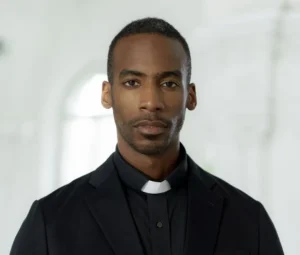
“You marry that man and you’re on your own, Susan, do you hear?” Steve shouted furiously. “No more money, nothing! You marry him and you get out of my house!”
Susan had looked at him with tears in her eyes. “I love you, daddy,” she said. Then she turned and walked away. Despite hiring detectives to find her, no one had been able to trace her.
“How many children?” Steve asked Pastor Morris.
“Four,” the pastor replied. “Three girls and a boy. Beautiful children.”
Steve picked up his phone and demanded that his plane be prepared. “Pastor, would you come with me to Los Angeles and take me to my little girl?” he asked quietly.
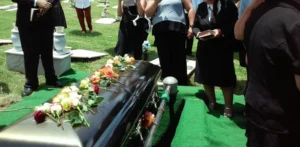
The pastor nodded, and within two hours, he and Steve were on Steve’s private jet heading south. When they landed, a limo was waiting to take them to a parking lot outside a large mall.
At the far end of the lot, they found a pickup truck with a tent set up in the back. Pastor Morris had told Steve that after Susan’s husband died in a work accident, the insurance company refused to pay out, and the bank foreclosed on their home.
Susan had packed her children and their few belongings into the old pickup. She worked as a cleaner at the mall and used the mall’s facilities. She also bought leftover food from the restaurants at the end of the day.
Despite everything, Susan managed to keep her four children fed, clean, and in school. As Steve and the pastor approached the truck, they heard cheerful voices and laughter. Two children tumbled out of the back, excited to see them.
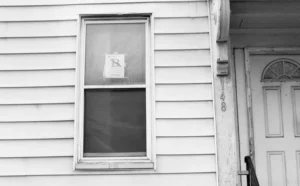
The oldest girl, around fourteen, was laughing as she tickled a boy of about seven. When Steve and Pastor Morris approached, the children stopped and stared.
“Mom!” the girl shouted. “That old preacher friend of yours is here!”
From inside the tent, a familiar voice asked, “Preacher Morris?” Susan then emerged, and Steve saw the shock on her face when she saw him standing next to the pastor.
“Daddy?” she asked, tears welling up in her eyes.
Steve was taken aback. His daughter was only thirty-one, but she looked much older. Her face was lined with worry and hardship, and her hands were rough from hard work.
“Susan,” Steve cried. “Look at you! Look at what HE did to my princess! I wanted so much more for you! And you married that loser! What could he have given you? Poverty?”
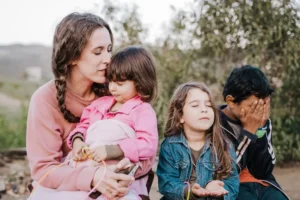
Susan shook her head and said, “He loved me, Daddy, and he gave me four beautiful children. He passed away, and I had nowhere to go, but I’ve done my best for my kids. I will always love their father, just like I’ve always loved you.”
Steve found tears streaming down his face. “Forgive me, Susan,” he sobbed. “Please forgive me. Come home, I want you all to come home with me. Let me help you take care of the children!”
As Steve held his weeping daughter, he knew that everything would be alright. Susan introduced him to his three granddaughters and then placed her hand on the boy’s shoulder. “And this,” she smiled, “is little Stevie!”
“You named him after me?” Steve asked, amazed. “After what I did?”
Susan looked at her father and said softly, “I love you, Daddy. Don’t you know that?”
That afternoon, they all flew back to Texas together. It marked the start of a new, better life for the whole family.
What can we learn from this story?
– **Love Your Children Unconditionally:** Steve’s anger at Susan for loving someone poor led him to lose his daughter. Accept your children no matter who they love.
– **Don’t Judge People by Wealth:** Steve didn’t like Susan’s husband because he was poor, but he was a loving and dedicated father. Don’t judge people by their money or status.
Share this story with your friends. It might bring them hope and inspiration.

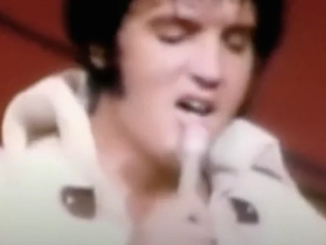
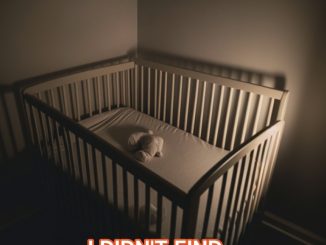
Leave a Reply